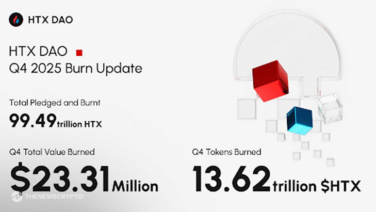- CFTC commissioner hopes to protect users in order to reduce the risk of future crises.
- Johnson says the current regulatory framework is not enough to prevent the crypto crisis.
The Commodity Futures Trading Commission (CFTC) of the United States is advising lawmakers to grant regulators the authority to examine the books of any firm seeking to acquire a significant interest in any registered market player. Commissioner Kristin Johnson has proposed that Congress pass legislation to close the current oversight gap in the cryptocurrency spot market.
Johnson presented a series of amendments in a speech at Duke University on January 21 that would allow the CFTC to conduct adequate due diligence on businesses, including crypto firms that want to acquire CFTC-regulated entities. She also stated that regulators should have more powers to protect customers, prevent liquidity crisis, and mitigate conflicts of interest.
According to the commissioner, one of these prospective modifications would give the commodities regulator new authority to look into and buy at least 10% of the stock interest in a CFTC-registered market participant.
CFTC Commissioner’s Speech Highlights
The commissioner specifically cited LedgerX as an example, which is currently experiencing financial difficulties, and said she supported a regulation that formalizes the obligations to segregate customer property, ensure financial resource requirements, and implement effective governance and risk management controls.
Moreover, Johnson has also used the FTX as an example to demand expanded authority for their agency to oversee the crypto industry, which must prevent any further FTX-like collapses from occurring.
She also argued in her speech that the current regulatory requirements for such acquisitions are insufficient to prevent future collapses. Furthermore, the CFTC is only required to be notified of any transfer of equity ownership and is not otherwise involved in a sale.
The commissioner opined that the current framework, such as anti-trust laws and regulations, may show to have an overly narrow reach market. That is becoming more and more diverse day by day and is promoting the government’s specialized and efficient risk management oversight.








